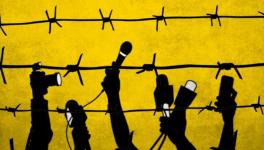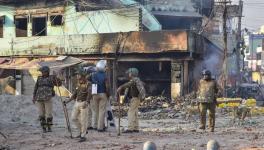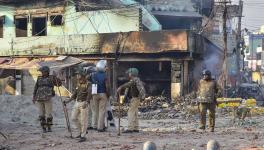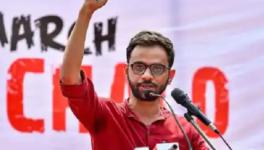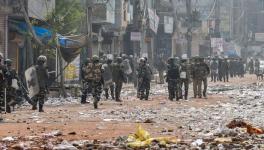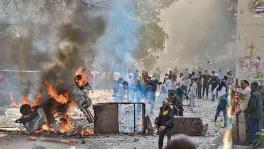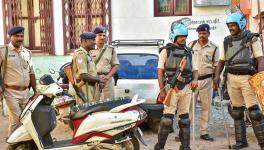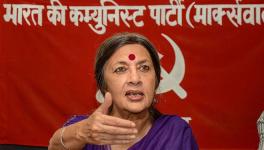Delhi Violence: Bangladesh Erupts in Protest Ahead of Modi’s Visit
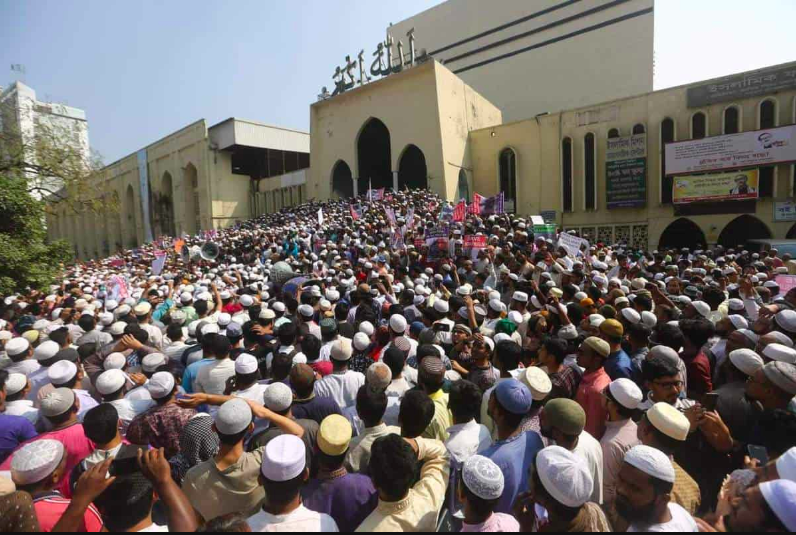
Image Courtesy: Siasat
New Delhi: In 10 days from now, Prime Minister Narendra Modi is due to visit Bangladesh where he will deliver the keynote address at the beginning of year-long celebrations marking the 100th birth anniversary of Sheikh Mujibur Rahman, the founder of Bangladesh.
The uncertainty surrounding Modi’s visit on March 17 was laid to rest recently. On March 6, The Times of India reported that the visit would happen, despite protests against his visit in parts of Bangladesh, including its capital city, Dhaka.
Recently, the speaker of Bangladesh’s Parliament cancelled her visit to India and the country’s major Opposition, the Bangladesh Nationalist Party, has opposed Modi’s upcoming visit.
On February 27, at a time when Delhi was still dealing with the communal riots that have left 53 dead so far, a majority of them Muslims, the Dhaka Tribune quoted the country’s Road Transport and Bridges Minister, Obaidul Quader, who said: “India helped us most during the Liberation War of Bangladesh and that is why the Indian prime minister has been invited to join the program. Refraining from inviting the Indian prime minister would have been an act of ingratitude.”
The Bangla minister reportedly responded to questions from journalists and the last line from his quote sums up the sentiment; not inviting someone holding the office of Indian PM would constitute “ingratitude.” Quader also referred to protests against the Citizenship (Amendment) Act, 2019 (CAA), in India, as its ‘internal’ matter.
On March 2, Muslims from the Netrokona and Nilphamari districts in Bangladesh requested their prime minister Sheikh Hasina to cancel the invite to Modi. Rallies against Modi’s visit took place in both regions with speakers who addressed the gatherings, saying they would not allow the Indian PM to set foot in the country and would surround the airport if that happened. Three days later, the country’s police stopped protesting students from reaching the Indian High Commission in Dhaka.
Condemnation by Other Countries
The recent violence in Delhi, which predominantly claimed Muslim lives, has not just angered Bangladesh. A host of countries, their leaders, or citizens have registered their condemnation in various forms.
On March 5, the Supreme Leader of Iran, Ali Hosseini Khamenei tweeted:
His statement came three days after Iran’s Foreign Minister’s statement which said the country “condemns the wave of organized violence against Indian Muslims.”
And it’s not just Muslim-majority countries that have been critical of the turmoil India has witnessed over the past few months. This past week, the United Kingdom’s Minister for Asia, Nigel Adams, expressed “concerns about the potential impact” of the CAA on a visit to Turkey. The UK Parliament has also had debates on the matter.
Speaking of Turkey, its President Recep Tayyip Erdoğan condemned the violence in Delhi, on February 27. “India has become a country where massacres are widespread,” he reportedly said, adding that “Hindus are slaughtering Muslims.”
Two days later, the Indonesian government also expressed concern over the situation in Delhi, its foreign ministry saying that it would speak with the Indian ambassador in Jakarta about the violence.
Prior to the Delhi violence, the Malaysian Prime Minister Mahathir Mohamad had also criticised the CAA in December last year, questioning its “necessity.” “Why is there a necessity to do this when all the while, for 70 years, they have lived together as citizens without any problem?” he reportedly asked.
Just yesterday, with the US Democratic Presidential nomination coming down to two candidates, Joe Biden was urged to remove Amit Jani as his Muslim outreach manager after revelations that he had strong ties with the Modi government. Almost a week ago, hundreds of Indian Americans reportedly took to the streets in major cities outside Indian consulates to register their protest against the Delhi riots.
In January, a group of Indian-Australians came together for an event titled ‘We Are With You’, in support of those who have been protesting against the CAA, which is considered a discriminatory citizenship law against Muslims.
Even as this is being written, protests are taking place in cities across Afghanistan with “Stop Killing Muslims” seen on banners.
After tweeting about the situation in Delhi on the fourth day after the violence began, Modi has largely remained silent on the matter, despite pressure from the international community. Neither he, nor Home Minister Amit Shah have visited the affected areas as yet.
Get the latest reports & analysis with people's perspective on Protests, movements & deep analytical videos, discussions of the current affairs in your Telegram app. Subscribe to NewsClick's Telegram channel & get Real-Time updates on stories, as they get published on our website.









